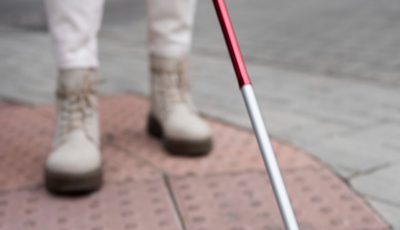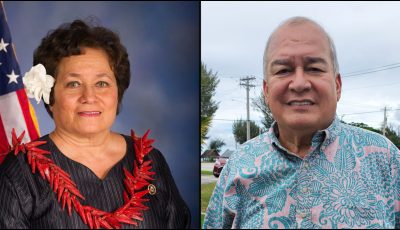Kilili, San Nicolas, Radewagen set insular goals for ‘CARES II’
WASHINGTON, D.C.—Delegates of three U.S. territories—the CNMI, Guam, and American Samoa—have again joined forces to identify priorities in a coronavirus relief package.
The three—Insular Affairs vice chair Gregorio Kilili C. Sablan, and Delegates Michael San Nicolas (D-Guam) and Aumua Amata Coleman Radewagen (R-American Samoa)—teamed up successfully last month during negotiations on the Coronavirus Aid, Relief, and Economic Security Act, “CARES Act,” and want to have the same influence on a future CARES II.
“Last time, we advocated for national policies to be drafted in a way that would be particularly helpful to the Pacific insular areas,” Sablan said. “Direct aid to states and territories facing revenue shortfalls with a special emphasis on increased school funding; unemployment benefits, even in areas like ours without unemployment insurance programs; direct payments to taxpayers with the federal government covering the cost for our areas; and increased Medicaid funding—that is what we asked for and that is what we got.”
Educators
For the next funding round, the Pacific insular area delegation wants to further increase aid to education. The Democratic alternative to the CARES Act contained $250 million for island schools, while the CARES Act only provides $151 million. The delegates want the extra $99 million in CARES II.
They also want to fine-tune legislative language, so the U.S. Department of Education has less power to decide how much money goes to island schools. And the delegates want to specify that island school systems must use the money Congress provides to maintain educational services to students during the coronavirus crisis.
“That would mean keeping teachers on salary and paying for computers and internet access, so students and teachers could do their work online,” Sablan said.
Infrastructure funding
The delegates also anticipate that CARES II could include a substantial investment in infrastructure funding. Both the White House and Democratic leadership in Congress have said that infrastructure spending could be a powerful tool to restart the economy after the coronavirus shutdown. And investment in America’s deteriorated infrastructure would also underpin future economic growth and public health.
The delegates’ focus is on the need for modern water infrastructure on the islands. In the Marianas, for instance, households and businesses cannot get potable water from the public utility. Substandard sewage systems threaten limited groundwater supplies and foul the ocean waters and reefs that are the primary drivers of the tourism economy.
“The Environmental Protection Agency reported to Congress in 2015 how much is needed to bring our insular area water systems up to the national standard—about $200 million for the Marianas, and about $300 million each for Guam and American Samoa,” Sablan said.
House Democrats have already put forward a $50.5 billion water infrastructure proposal; and the delegates have asked for a 2% set-aside to cover EPA’s cost estimates for insular needs.
The delegates also back inclusion of the Rebuild America’s Schools Act, H.R. 865, in CARES II. As chairman of the Subcommittee on Early Childhood, Elementary, and Secondary Education, Sablan helped draft this bill to address the $177 million in deferred maintenance needs that the U.S. Army Corps of Engineers reports in island schools. The Act already has 212 cosponsors.
Healthcare for all
During the health crisis caused by the coronavirus, the delegates also returned in their CARES II request to equity under the national healthcare programs for people in the insular areas.
“This pandemic really exposes the gaps in America’s healthcare systems,” Sablan said. “There is national attention on how the lack of health insurance impacts the African American community and results in higher death rates from coronavirus. About 19% of African-Americans are without health insurance.
“But in the Marianas the uninsured rate is 34%, in Guam about 20%, and in American Samoa over 60% have no health insurance. So, we are asking for full inclusion of the insular areas in the Affordable Care Act to give our people the ability to buy subsidized insurance through an Obamacare exchange. And to cover those whose incomes are even lower, we want a repeal of the artificial cap on federal Medicaid expenditures in American Samoa, Guam, and the Marianas,” he said.
On Tuesday, Sablan introduced H.R. 6495 to repeal the Medicaid cap. (PR)



























